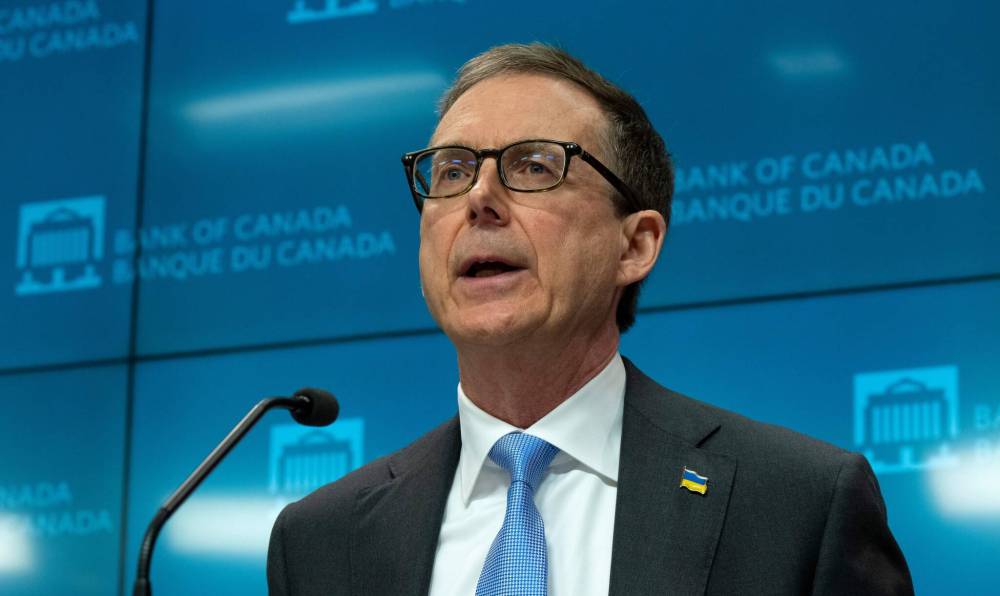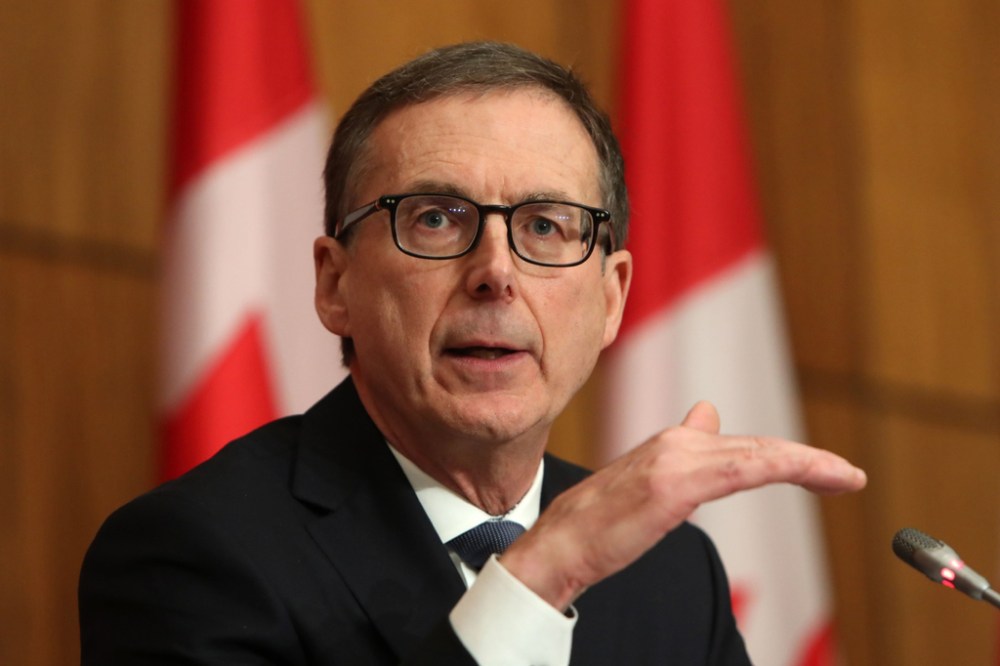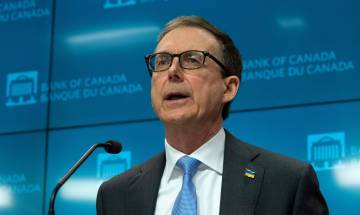A sledgehammer approach to fighting inflation
Read this article for free:
or
Already have an account? Log in here »
To continue reading, please subscribe:
Monthly Digital Subscription
$0 for the first 4 weeks*
- Enjoy unlimited reading on winnipegfreepress.com
- Read the E-Edition, our digital replica newspaper
- Access News Break, our award-winning app
- Play interactive puzzles
*No charge for 4 weeks then price increases to the regular rate of $19.00 plus GST every four weeks. Offer available to new and qualified returning subscribers only. Cancel any time.
Monthly Digital Subscription
$4.75/week*
- Enjoy unlimited reading on winnipegfreepress.com
- Read the E-Edition, our digital replica newspaper
- Access News Break, our award-winning app
- Play interactive puzzles
*Billed as $19 plus GST every four weeks. Cancel any time.
To continue reading, please subscribe:
Add Free Press access to your Brandon Sun subscription for only an additional
$1 for the first 4 weeks*
*Your next subscription payment will increase by $1.00 and you will be charged $16.99 plus GST for four weeks. After four weeks, your payment will increase to $23.99 plus GST every four weeks.
Read unlimited articles for free today:
or
Already have an account? Log in here »
Hey there, time traveller!
This article was published 25/07/2022 (1233 days ago), so information in it may no longer be current.
Bank of Canada governor Tiff Macklem was looking mighty smart this week after the latest inflation report from Statistics Canada.
In mid-July, Mr. Macklem and his colleagues at the central bank applied a sledgehammer in the fight against inflation, as though they knew it was worse than it looked. Last week, sure enough, the statistics agency found the Consumer Price Index had shot up by 8.1 per cent year-over-year in June.
The bank had astonished economic commentators with an increase of a whole percentage point in the Bank of Canada’s administered interest rate. Most had been expecting an increase of 0.5 per cent or maybe 0.75 per cent. Now that it’s clear inflation was growing steadily worse, it seems as though the central bankers saw the bad news coming.

A month from now, Mr. Macklem and his team may look like miracle workers. There were a few signs in the June CPI report suggesting inflation may now have peaked in Canada.
The retail price of gasoline has already dropped from May to June. Home ownership expenses rose less in June than they did in May. It’s entirely possible the inflation number for July will be pretty near even with June’s number, as if Mr. Macklem had swung his sledgehammer and immediately solved the problem.
The challenge, however, is not merely to keep the rate of price inflation constant. Eight per cent annual inflation is not a sustainable condition for a market economy. Canadians need stable prices, meaning prices that rise no more than about two per cent a year. We are still far from that goal.
Automobile prices are up sharply because consumers still want to buy cars but auto-makers cannot obtain the computer chips they need from Asian semi-conductor firms still plagued with COVID-19-related shutdowns. Food prices are high and rising because Russia is waging war against Ukraine, one of the world’s greatest food producers.
Though crude oil and gasoline prices have dropped, energy prices generally are still so exceptionally high that electricity rates in Alberta, reflecting natural gas prices, were 54.6 per cent higher in June than the year before.
Neither Mr. Macklem nor any other central banker holds the magic wand that will find a new source of computer chips for the auto industry, stop Russia’s war against Ukraine or bring oil and gas prices back to more normal levels.

The tool central bankers wield is the one they are all relying on in recent months – the sledgehammer of increasing interest rates. By driving up the cost of borrowing, they impoverish some consumers, drive some firms out of business, and compel households to make do with the car and the house they already have.
When this brutal and indiscriminate policy is pursued long enough, the result is a downturn in trade and employment — perhaps amounting to a recession. That is the surest way to restore price stability, but it takes persistence and determination, and it condemns Canada and its trading partners to a period of high unemployment and lost output.
Hints that inflation has peaked in Canada were encouraging if true. But like the crest of a flood, the peak of an inflation surge is just one stage in an unfolding disaster. Mr. Macklem and his colleagues may still have to swing their sledgehammer a few more times before Canadians once again enjoy stable prices.








